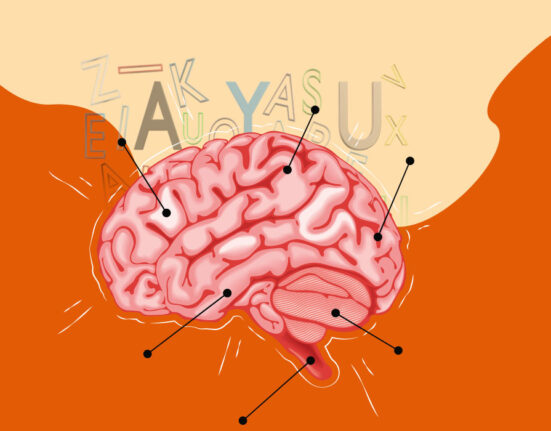Vipassana is a traditional meditative practice which is known as a Buddhist meditation, sometimes called “insight” or “mindfulness” meditation, which aims at seeing things as they are. This practice of this method involves disciplined self-observation of breath and body sensations in the present moment, cultivating deep self-awareness and non-judgmental acceptance. As one guide explains, Vipassana “seeks self-transformation through self-observation,” helping practitioners stay rooted in the present and less caught up in past regrets or future anxieties. Modern instructors (notably S.N. Goenka) teach it in silent 10-day retreats, where participants build concentration and equanimity. In the process, many report that personal patterns of thought and emotion become clearer, laying the groundwork for broad mental health benefits.
Benefits of Vipassana Meditation
Stress Reduction and Anxiety Relief
A large body of evidence shows Vipassana (and mindfulness meditation broadly) can sharply reduce stress. In one observational study of a 10-day retreat in Oman, all participants reported dramatic drops in psychological distress after the course. Their scores on stress-related symptom scales fell steeply, whereas a similar control group showed no change. Biologically, long-term meditators (who typically practice Vipassana or similar techniques) have lower stress-hormone reactivity. In a lab stress test (the Trier Social Stress Test), experienced meditators showed significantly smaller cortisol spikes and lower self-rated stress than matched non-meditators. This research suggests that deep, sustained meditation practice calms the body’s stress response system.
In everyday life, reducing stress can yield many subsequent benefits. Feeling less overwhelmed correlates with improved focus, energy, and general well-being. As one review notes, mindfulness is linked to higher levels of positive affect, life satisfaction, vitality, and adaptive emotion regulation and lower negative emotions. In plain terms, meditators tend to report feeling happier and more content on average.
Anxiety and Depression Relief
Closely related to stress reduction, Vipassana practice often alleviates clinical symptoms of anxiety and depression. In the Oman study, the average participant’s anxiety score plunged from 10 to about 3 (on a 0–21 scale) by the end of the retreat, a highly significant drop. Depression scores fell similarly. In other words, every meditator in that group had a significant improvement in their mental health after the 10 days of Vipassana. These improvements were statistically significant (p=0.001) and much larger than any changes in the non-meditating control group.
In empirical research it is highlighted that Vipassana reduces stress and improves mental health outcomes such as anxiety and depression, which aligns with decades of mindfulness therapy research: for example, Mindfulness-Based Stress Reduction (MBSR) programs (which derive from Vipassana-style practices), consistently show moderate-to large reductions in anxiety and depressive symptoms across many studies. By cultivating awareness and acceptance of thoughts and feelings, Vipassana helps interrupt the automatic “fight-or-flight” and negative thinking loops that underlie anxiety and mood disorders.
Emotional Regulation and Self-Awareness
A core psychological benefit of Vipassana is enhanced emotional regulation. The practice teaches people to notice emotions and sensations as they arise, without immediately reacting. By repeatedly observing feelings such as anger, fear, frustration, etc., with equanimity, meditators develop greater control over their responses. For example, one literature review reports that Vipassana promotes emotional regulation and increases insight into one’s mental states.
Practitioners often describe feeling less overwhelmed by stressors and more able to let difficult emotions pass. Neuroscientific studies of long-term meditators echo this: such individuals show signs of decoupling emotional reactivity from cognition. They report enhanced emotional neutrality and reduced pain and fear responses, implying a calmer, more balanced inner state.
At the same time, Vipassana dramatically builds self-awareness, seeing things as they are (insight). Through practice and training, we attain acceptance and compassion instead of resisting or fearing negative thoughts, Meditators learn to accept them as passing phenomena. Over time, this can lessen the impact of negative self-talk and shame. Studies connect higher mindfulness to traits like empathy and self-esteem. Practitioners often feel kinder toward themselves and others, which can break cycles of blame or anger.
Cognitive Benefits and Decision-Making
Beyond mood, Vipassana also appears to sharpen cognitive abilities and decision-making. The concentration practice in meditation strengthens attention control. Studies of long-term meditators show improvements in complex cognitive tasks. For example, meditators have been found to make more rational decisions in economic and social games than non-meditators. In one set of experiments, skilled meditators were willing to accept more unfair offers in a social cooperation game, indicating less impulsive or retaliatory thinking, and their brain imaging showed greater activation in regions tied to interoception and self-control. Overall, researchers interpret this as meditators weighing choices more calmly, rather than reacting out of anger or fear.
One review summarises these findings: “Previous research has demonstrated improvements in both social and non-social decision-making among meditators, likely due to enhanced emotion regulation, empathy, and cognitive control”. In everyday life, this might mean a person feels less triggered by a provocation and can think through the consequences before acting. Enhanced executive function (planning, problem-solving) is also reported. Long-term mindfulness meditators show signs of increased cognitive flexibility and integration between sensory and cognitive brain networks. Put simply, Vipassana can help people become more thoughtful, less reactive thinkers – able to consider long-term outcomes rather than knee-jerk impulses.
Improved Relationships and Empathy
Because Vipassana heightens empathy and compassion, it often benefits interpersonal relationships. The same qualities that improve self-regulation (e.g. patience, non-judgment) translate into better social interactions. Empirical reviews note that Vipassana’s impact on emotional intelligence and empathy contributes to more harmonious interpersonal relationships and reduced social conflict. Meditators tend to report increased patience and understanding toward others. For instance, prison programs that teach Vipassana have recorded striking effects: inmates in various countries who completed a 10-day Vipassana retreat often show calmer behaviour and improved mood. Guards and psychologists have noted fewer conflicts and greater cooperation among participants. Although these are observational findings, they align with the idea that deeper self-awareness leads to more solicitous engagement with others.
Research on trait mindfulness also supports this, higher mindfulness correlates with greater empathy and agreeableness. People who meditate regularly often describe feeling more connected and being better listeners. These social benefits can boost satisfaction in relationships and community life. By learning “non-violence and compassion” (core Vipassana principles), practitioners may also act more ethically, which can improve family and workplace harmony.
Mindfulness in Daily Life and Life Satisfaction
A key promise of Vipassana is that its mindful awareness extends into everyday activities. After retreat practice, many report approaching tasks, eating, walking, and working with more focus and enjoyment. Life’s moments become less automatic and more vivid. Psychologists explain this by noting that mindfulness training increases present-moment awareness and lowers the mind’s habit of drifting to regrets or anxieties. In practical terms, someone may notice their breath or bodily sensations throughout the day, using them as anchors when stress arises.
Over the long term, higher mindfulness tends to raise overall life satisfaction. Large surveys find that individuals who naturally pay more attention to present experiences report higher levels of happiness and well-being. Mindfulness is positively linked with optimism, positive affect, and general functioning. Even short-term studies of meditation retreats often note gains in mood and quality of life. These subjective improvements are backed by measures of well-being; controlled trials of mindfulness-based interventions consistently find increased life satisfaction and reduced psychological symptoms afterwards.
Conclusion
Thus, we can say that Vipassana has a lasting impact on various mental health and, by extension, our social life. This meditative practice makes an individual calm, composed and insightful, helping them to reduce stress, ease anxiety and depression, and improve emotional balance. Research has shown that Vipassana meditation helps people live more consciously and healthily with a form of inner engineering that supports well-being on multiple levels.
FAQs
1. What Vipassana meditation technique?
Vipassana meditation is a mindfulness technique that emphasises observing thoughts, feelings, and sensations in a non-judgmental way to achieve a deeper understanding of oneself and the nature of reality. It’s an ancient practice rooted in Buddhism to realise the true nature of existence and ultimately achieving liberation from suffering.
2. What is Vipassana meditation, and how do you practice it?
Vipassana meditation is a mindfulness technique that aims to purify the mind by observing reality directly, without judgment. It involves focusing on the physical sensations of the body to cultivate awareness and understanding of the nature of experience. The practice involves observing the breath, then moving to a systematic body scan, and finally, extending awareness to all aspects of life.
3. How to do Vipassana meditation at home?
To practice Vipassana meditation at home, find a quiet space, sit comfortably, and close your eyes. Begin by focusing on your breath, observing the sensations of inhaling and exhaling. When your mind wanders, gently redirect your attention back to your breath without judgment.
4. How to do Vipassana meditation for beginners?
Vipassana meditation, meaning “to see things as they really are,” is a technique that focuses on self-observation and mindfulness. For beginners, it involves observing your breath and gradually expanding your awareness to your body and mind. The goal is to develop a clear and equanimous mind by observing the changing nature of sensations and thoughts without judgment.
References +
- Krygier, J.R., Heathers, J.A., Shahrestani, S., Abbott, M., Gross, J.J., & Kemp, A.H. (2013). Mindfulness meditation, well-being, and heart rate variability: A preliminary investigation into the impact of intensive Vipassana meditation. International Journal of Psychophysiology, 89(3), 305–313. https://doi.org/10.1016/j.ijpsycho.2013.06.017
- Sahdra, B.K., Ciarrochi, J., & Parker, P.D. (2016). Nonattachment and mindfulness: Related but distinct constructs linked to psychological wellbeing. Personality and Individual Differences, 93, 125–130. https://doi.org/10.1016/j.paid.2015.08.049
- Pascoe, M.C., Thompson, D.R., Jenkins, Z.M., & Ski, C.F. (2017). Mindfulness mediates the physiological markers of stress: Systematic review and meta-analysis. journal of Psychiatric Research, 95, 156–178. https://doi.org/10.1016/j.jpsychires.2017.08.004
- Sedlmeier, P., Eberth, J., Schwarz, M., Zimmermann, D., Haarig, F., Jaeger, S., & Kunze, S. (2012). The psychological effects of meditation: A meta-analysis. psychological Bulletin, 138(6), 1139–1171. https://doi.org/10.1037/a0028168
- Villena-González, M., Varas-Díaz, G., González, M., Ibaceta, M., & Cosmelli, D. (2023). Long-term mindfulness meditators exhibit increased spontaneous occurrence of brain states involving sensory and attention networks. ResearchGate. https://www.researchgate.net/publication/371891628
- Goenka, S.N. (2000). The Art of Living: Vipassana Meditation as Taught by S.N. Goenka. Pariyatti Publishing. https://store.pariyatti.org/The-Art-of-Living–Hardcover-P1662.aspx













Leave feedback about this